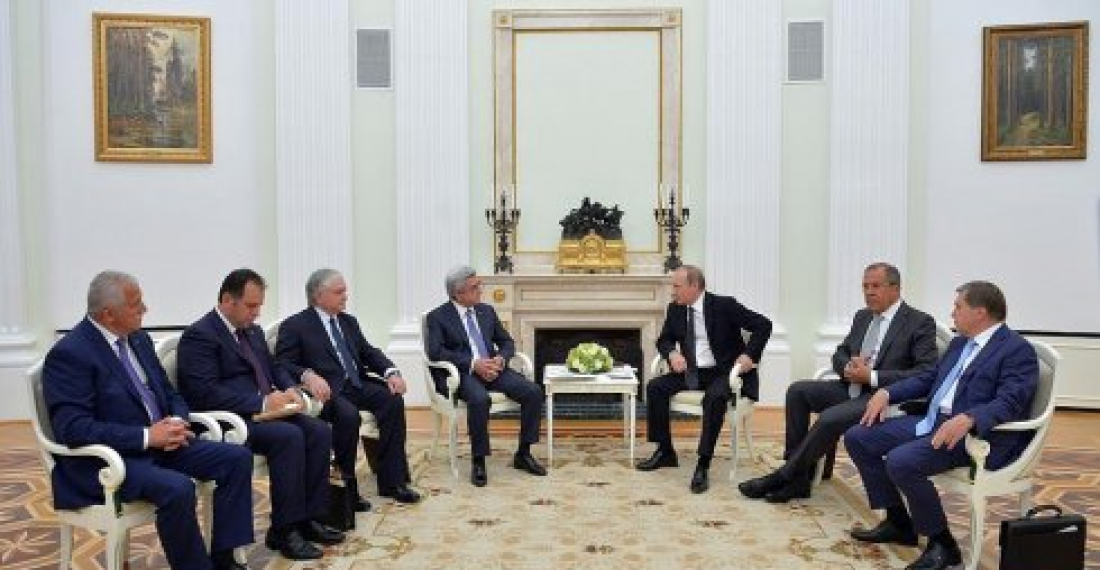В Москве проходит встреча президента России Владимира Путина и его коллеги из Армении Сержа Саргсяна. На встрече также присутствуют министры иностранных дел двух стран Эдвард Налбандян и Сергей Лавров. Напомним, что в понедельник Путин провел встречу с президентом Азербайджана Ильхамом Алиевым в Баку, а во вторник в Санкт-Петербурге состоялась его встреча с президентом Турции Реджепом Тайип Эрдоганом.
Как ожидается, на повестке дня встречи Путин-Саргсян будут вопросы связанные с урегулированием конфликта в Нагорном Карабахе, а также ряд двусторонних вопросов.
На встрече с президентом Армении Путин отметил, что Армения является стратегическим партнером России на Кавказе. Путин сказал, что после первого года членства этой страны в Евразийском экономическом союзе ВВП Армении вырос на 10%. В ответ на слова Путина президент Саргсян сказал, что торговый оборот Армении с Россией вырос на 90% в результате членства его страны в ЕврАзЭС. Он поблагодарил президента Путина за его усилия по урегулированию нагорно-карабахского конфликта. Путин со своей стороны, сказал, что он обсуждал этот вопрос с президентом Алиевым в Баку в понедельник и пообещал рассказать президенту Саргсяну о результатах этой встречи.
источник: commonspace.eu
фото: Встреча президента России Владимира Путина и президента Армении Сержа Саргсяна в Москве, 10 августа 2016 (фото любезно предоставлено пресс-службой Президента России).






